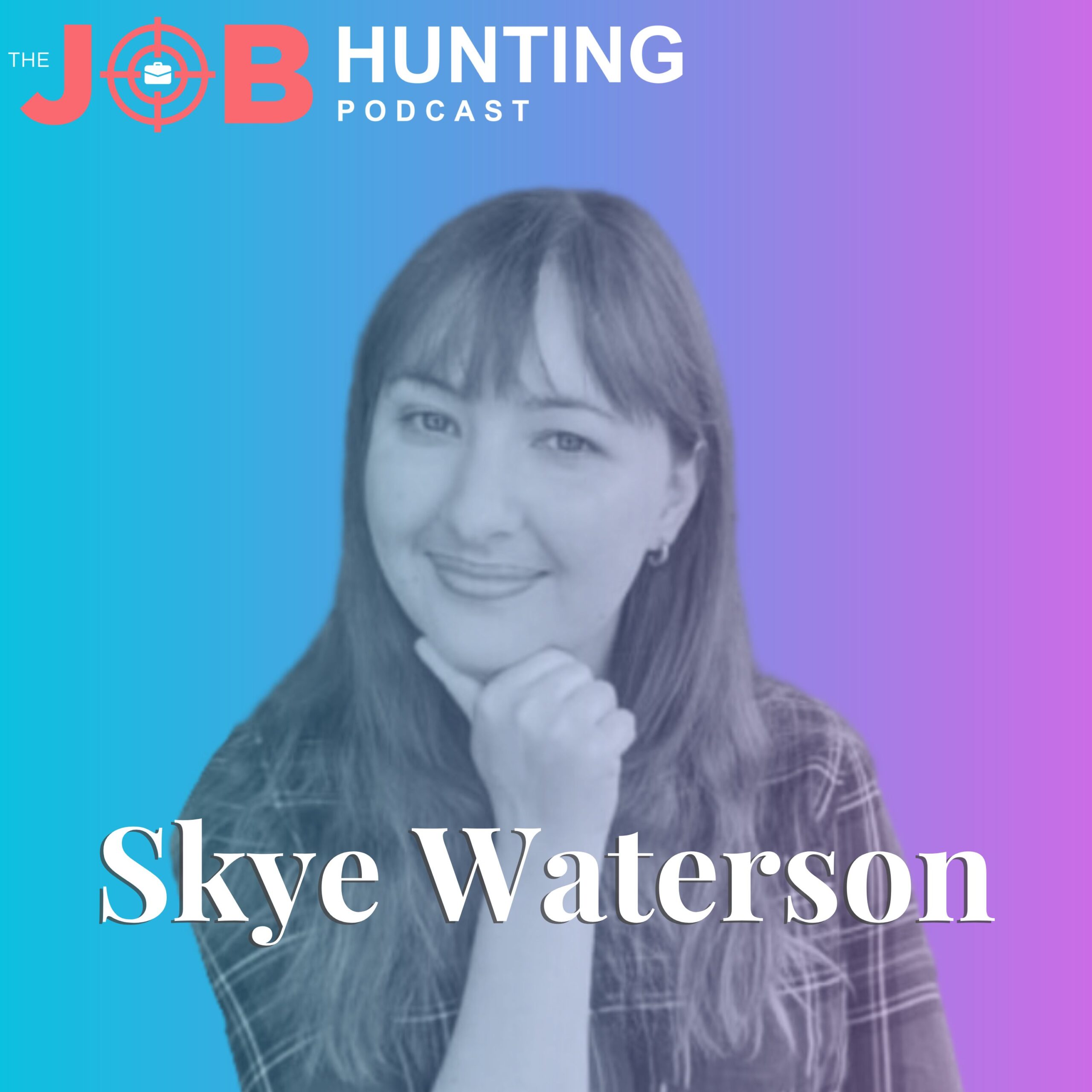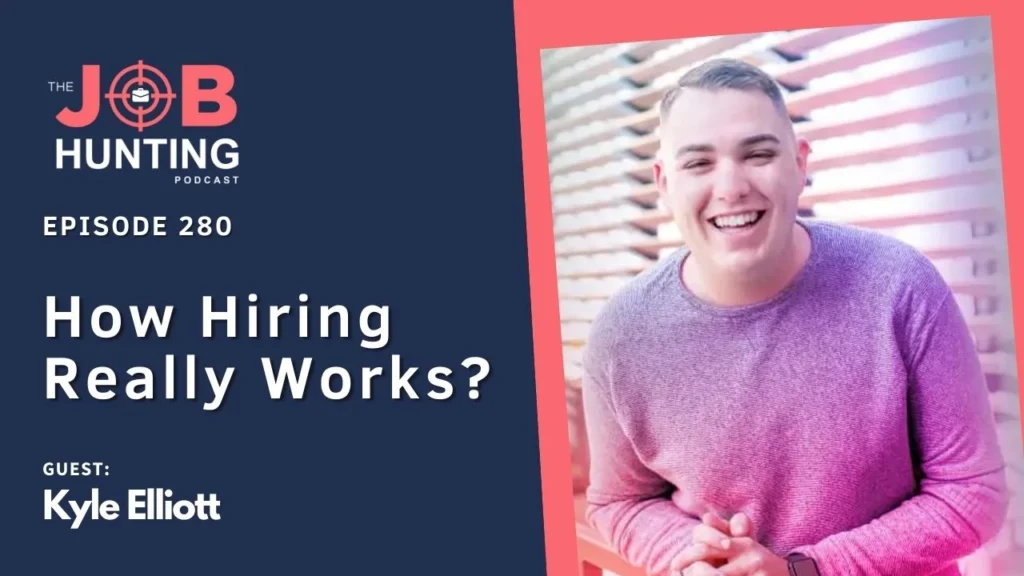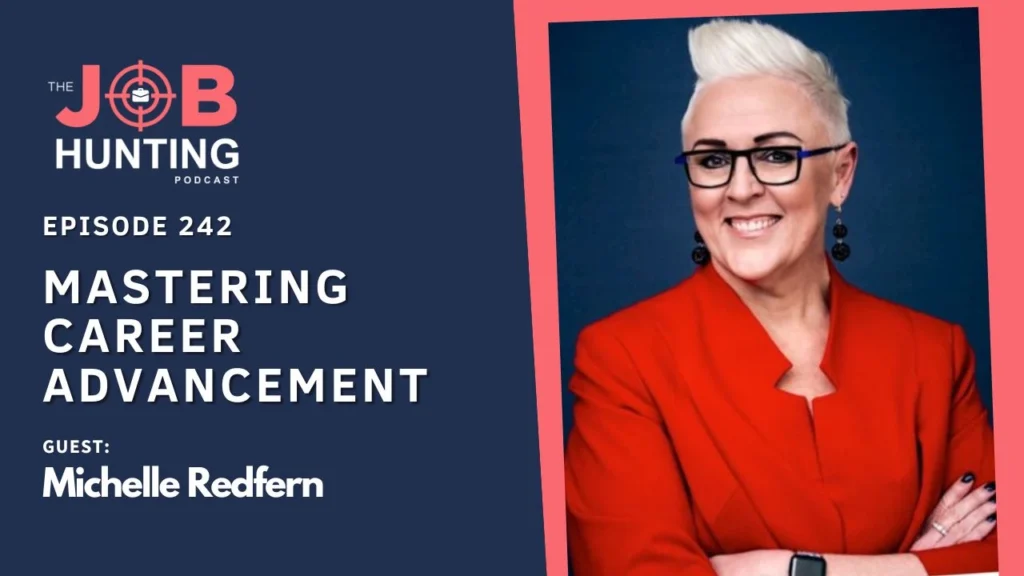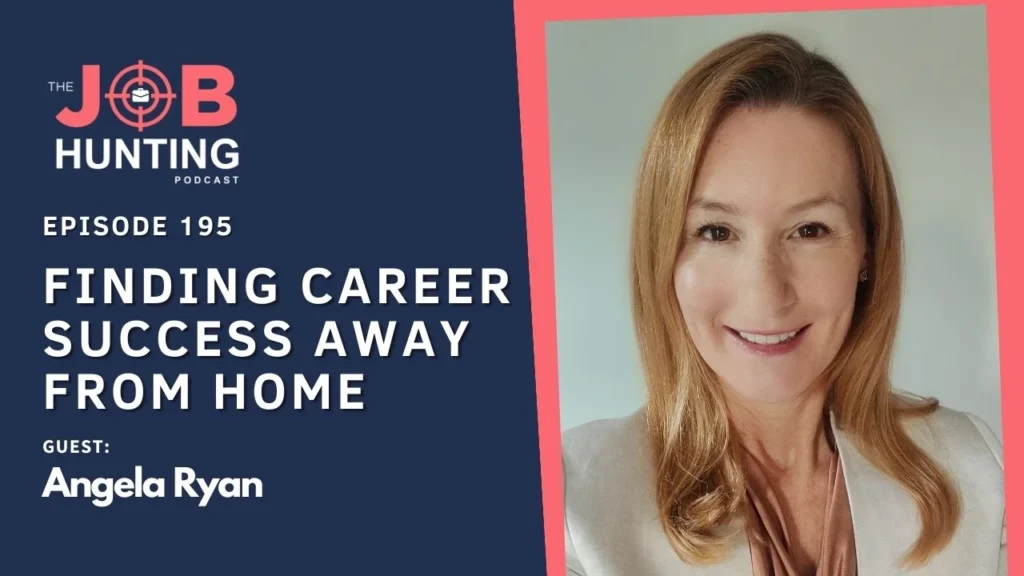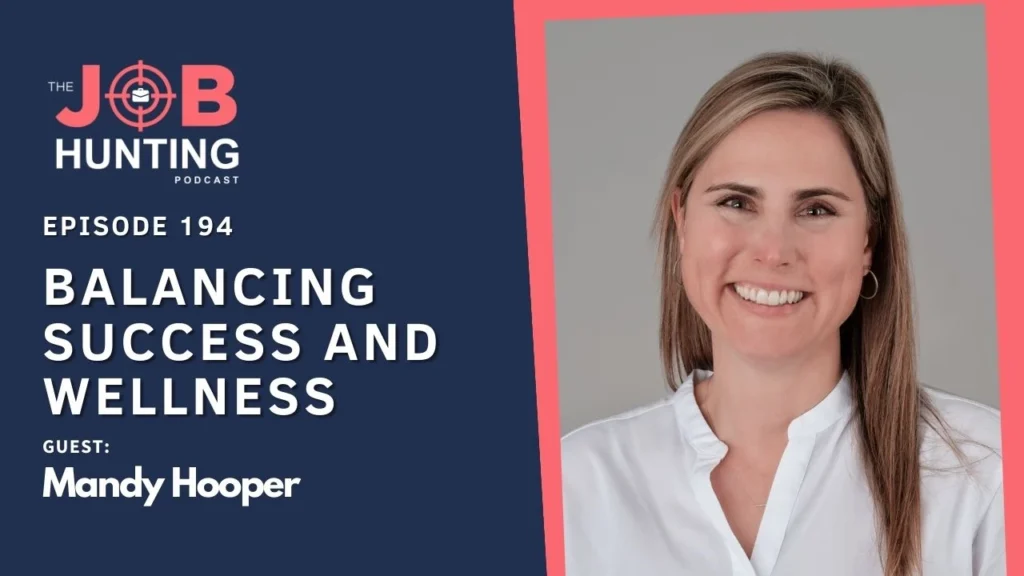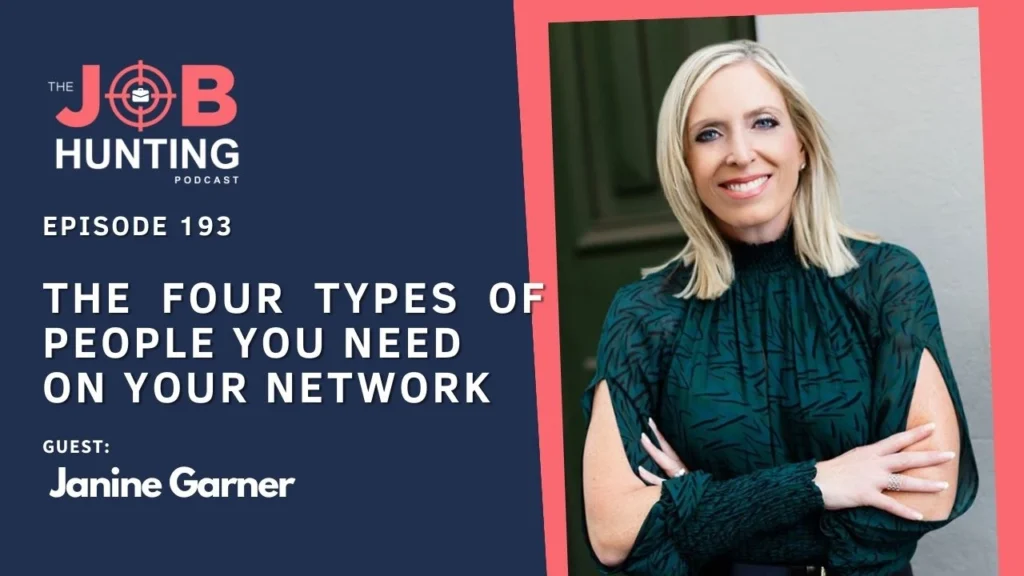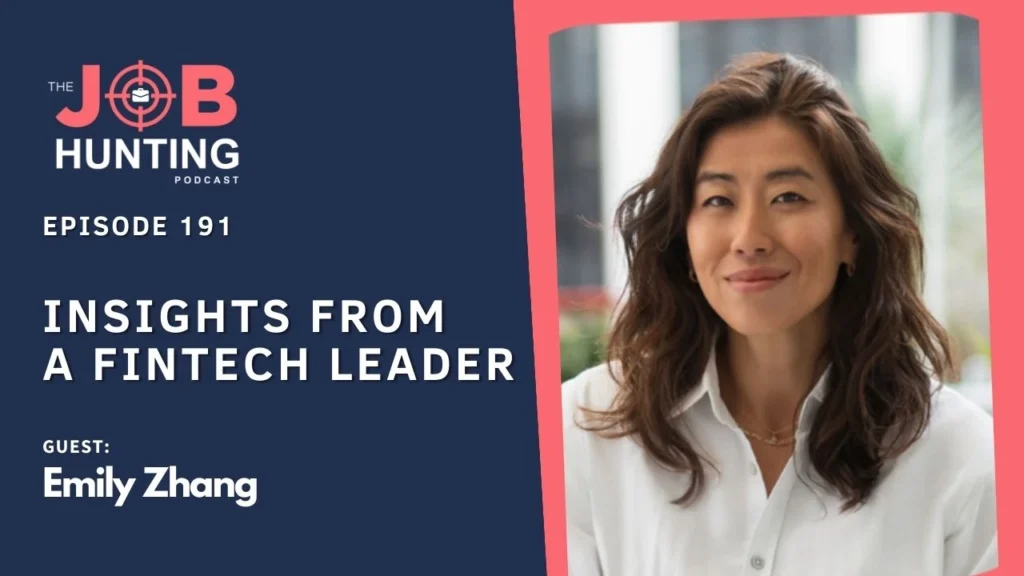Renata Bernarde: Okay. And how did you find me?
Skye Waterson: Just looking around because, you know, I work with professionals who have ADHD, and we like to go on Spotify and search for jobs, job hunting, things like that. I’m always curious to find out what’s out there. I was listening to a podcast episode of yours about video and how it’s becoming a focus in applications.
So this is kind of my bread and butter. This is where I hang out.
Renata Bernarde: Okay. Do you find that because of the podcast, your clientele is broader than just New Zealanders? I assume it is.
Skye Waterson: Yes. Yeah. We don’t really have any clients from New Zealand, actually. Most of our clients are from the US, Australia, and the UK.
Renata Bernarde: Yeah, same here. Oh, interesting.
Skye Waterson: Weird, right?
Renata Bernarde: Ah, it makes us work odd hours of the day, doesn’t it?
Skye Waterson: This is my lunchtime.
Renata Bernarde: All right. I would love to hear about your personal journey with ADHD. When did you first find out that your brain operated slightly differently? Is that how you would explain it?
Skye Waterson: That’s a good way. So I was actually starting a doctorate. My first career was as an academic. When I started, I really wanted to get some support, so I went to the inclusive learning center because writing essays sometimes went well, sometimes terribly. I thought maybe I had dyslexia, which had been talked about in my family. So I went, and they did a bunch of tests over a couple of days. Afterwards, they said, “We don’t know for sure about dyslexia, but we’re pretty confident you have ADHD.”
And that was a real surprise. I actually taught developmental psychology, so I had an understanding of ADHD in kids, but at the time, ADHD in adults wasn’t really discussed, not even in psychology. That was the beginning of a real journey for me, understanding what that looked like.
Renata Bernarde: And what does it take to get a diagnosis for ADHD as an adult? How did they figure that out?
Skye Waterson: That’s a really good question. So that wasn’t a diagnosis, that was an assessment with the university. To get diagnosed, you need to find a specialized clinical psychologist, a psychiatrist, or in some countries, a doctor. It can be quite difficult. When I talk to people in the UK, if you go through the NHS, there’s a waiting list of nine years, last I heard. So, often people end up going the private route, which can be very expensive.
Renata Bernarde: When you found out that you had ADHD, did you then look back and in hindsight see the signs? Can you tell us about finally having an answer as to why things happened the way they did? I would love to get a couple of examples so that some of my listeners can either relate to it or say, “Nope, that’s not me.”
Skye Waterson: Yeah, definitely. For sure. One thing I realized was that I was burning out a lot. My academic career looked like doing something like a master’s and then taking a year off before starting a doctorate because I needed to do something else.
But really, I was just burning out. I was pushing myself very hard to finish those degrees. Another thing was that every single one of my honors, master’s, and doctorate degrees were in completely different subjects. Looking back, that was very ADHD. I kept thinking that if I could just find the right discipline or the right job, the right focus, then I would be technically neurotypical. I thought all of these struggles I was having must be because I wasn’t passionate enough about the topic. So, I would jump from one thing to another. Even in some cases, people would say, “I don’t think you’re allowed to jump this many times,” but I did it anyway. In hindsight, I’m happy to have such a multifaceted knowledge base now, but it was very much ADHD.
Renata Bernarde: Yes. It’s funny you say that. I’ve been listening to a podcast called “How to Take Over the World.” Have you heard about it?
Skye Waterson: Yeah, I have.
Renata Bernarde: Fascinating. The presenter didn’t mention ADHD when explaining Leonardo da Vinci, but I thought, I bet that man had ADHD. He had a real difficulty finishing his paintings, and painting wasn’t his only passion. He was into science, had many other amazing interests, and hardly ever finished anything, yet he was an absolute genius. So, the word ADHD wasn’t mentioned in the episodes about him, but I…
Skye Waterson: Mm. I think there’s a book about him having ADHD. I remember reading that when I first got diagnosed. It was either him or someone else.
Renata Bernarde: Yeah.
Skye Waterson: But then, do you also find that when you tell people you have ADHD, the first thing they say is, “Oh, all these geniuses and billionaires have ADHD,” and it puts another level of pressure?
Renata Bernarde: Yeah.
Skye Waterson: You’re like, well, you know, the good news is you get an ADHD diagnosis, and then they hand you your ticket to become the next genius we’re talking about now, and it’s done. That’s it.
Renata Bernarde: Yeah, yeah. It’s not really like that, is it?
Skye Waterson: No, not at all. A lot of the time, at least for me, it was a complex thing. I’ve noticed this a lot with the clients I work with as well. There’s relief in figuring it out because usually by that time, when you’re getting the diagnosis, it’s because you think you have ADHD. So you’ve been thinking about it and looking at the research. It’s like, okay, it’s not just me. There is a thing. That’s great. But then you have to think back and go, “Oh, wow. This has really affected my life in these ways. These are the things that might’ve been different if I’d known.” So you have to deal with that. Then it throws into question what it means for where you are now and what you want to do with your life. Those things become shaded differently when you find out you have ADHD.
Renata Bernarde: What were your biggest challenges once you found out that you had the diagnosis? You were halfway through your PhD or beginning your PhD. What happened then? How did knowing change things for you? Did you finish your PhD?
Skye Waterson: That’s a good question. So, I didn’t, but not for the reasons you’d think. For me, it was mostly a positive thing. What was helpful was that I had over-engineered my organizational systems before my ADHD diagnosis. I was trying to be very organized because there were so many pieces to handle in academia – papers, documents, etc. That meant I was working a lot harder than I needed to. Understanding that some parts of my system helped my working memory was important, but I also realized some parts were unnecessary. So, I streamlined my processes. This was the beginning of the organization I run today.
I worked as an adult educator for about eight years. As soon as I found out I had ADHD, I asked if I could run a group for postgraduates who are neurodiverse. I really wanted to learn about the community and do that kind of thing. So that was helpful, being able to dive into it in that way immediately. When COVID hit, I was still doing my PhD, but I ended up transitioning into what I do now by taking on some coaching clients. The business grew and grew until I had to make a decision between my PhD and the business.
Renata Bernarde: That’s awesome.
Skye Waterson: I decided I could, unfortunately, come back to the PhD, but the business was my chance. So I did it, and I’m really glad I did.
Renata Bernarde: I do too.
Skye Waterson: It was a hard decision, though.
Renata Bernarde: So when clients come to you looking for professional support, what is it that they’re facing? What are the key challenges that you see happen again and again for professionals with ADHD?
Skye Waterson: The first challenge I would say is just absolute overwhelm. Most people who come are completely overwhelmed. Usually, something has happened that has caused a lot of overwhelm. COVID was a big source of overwhelm. Now it could be taking on a new project, having kids, but usually, people are saying, “Hey, I barely had my organizational systems together. I was handing in things mostly on time. I was keeping track of events that were coming up. I was talking to my family and friends semi-regularly, and then something else happened, and that whole thing just fell apart, and now I really need help.” That’s usually where people are at.
Renata Bernarde: Yeah. And I have no idea, this is a genuine question. When you have ADHD, is it likely that you also have other things going on? I have an invisible disease, and what I have found is that there is potential for me to develop other things with my condition. Is that something that happens with ADHD?
Skye Waterson: If we look at the research, there’s a correlation between ADHD and dyslexia, ADHD and autism. It’s often considered a bit of a cloud of different neurodiverse conditions. So yeah, it’s something that people often recommend figuring out, but it can be hard to test for some of them like dyscalculia and dyslexia, especially in adults.
Renata Bernarde: Do you bring that up? Is it a sensitive issue? I’m assuming it must be very delicate. Once you start working with a client, you’re not a coach who diagnoses, so where do you stand?
Skye Waterson: Yeah. I will never diagnose or even suggest anyone is anything other than what they say. Sometimes people come to me without an ADHD diagnosis, so we’re just helping with executive dysfunction at that point. But I am aware of the different supports that are out there. If someone says they work super well visually but find it hard to read, we’ll support them where they’re at with whatever they need. Some of these things overlap anyway. If they say they’re struggling with emotional regulation or something else, sometimes I’ll help them find the support they need and also help them write down and remember why they needed that support and what it was for.
So I can kind of help bridge that gap a little bit because actually getting access to those resources in itself can be an executive functioning task.
Renata Bernarde: Oh, yes, yes, and we count ourselves lucky in Australia, but even here, it’s very hard to get the support that we need. You and I are very similar in that way. Sometimes I catch up with other coaches and they’re horrified with my methods. So I’m going to share with you because it resonated with me what you said.
You know, you accept people as they are. As a career coach helping people look for work, we usually say, “Oh, you have to network,” right? But I have worked with clients that are extremely introverted or have some sort of neurodiversity, and networking for them is a source of great anxiety. And I just go, “Okay, fine. Let’s find other ways to help you find a job.” It’s not impossible. Yes, it’s a door that we close, but we need to be good at other things if networking is an issue for you. I really do take that on board. Like all the clients who have come to me and said, “I hate applying with recruiters. I only like getting jobs through my network.” Okay. As a coach, I’m not going to force you. You are an adult. I am going to help you play your game. I’m not going to make you play my game.
Skye Waterson: Yeah. It’s interesting. The thing about ADHD, at least in the years that I’ve been coaching, is that we are very similar—a lot more similar than we often realize. Obviously, everyone is really different, but often people will come to me and say, “Hey, this is a thing I’m telling you.” Sometimes they haven’t even told anyone, and I really appreciate them sharing, but also that’s about the third time I’ve heard that exact thing that week. We often have similar struggles, you know? I’ll give you an example. Sometimes with ADHD, it can be difficult to remember to brush your teeth. This is something I hear from a number of clients in different ways, to the point where somebody will say that and they’ll be like, “I can’t believe I told you that.” And I’ll be like, “Yeah, that’s fine.” I already have some strategies in place to help you with that. So I meet people where they’re at. It’s really important. I say, “Bring your worst self to coaching; that’s usually the best self to work with.”
Often, that self is the one we understand how to work with. It’s not as painful as it sounds like it’s going to be. Often, people think, “Right, it’s time to get serious. It’s time to do the thing in the most horrible, hard way.” No, we have strategies around dopamine and things like that to make everything, even applying for a job, less painful. People often don’t know what they don’t know around that sort of thing.
Renata Bernarde: I saw some of your videos about spreading out the dopamine throughout the day and I thought that was really interesting. I’m going to take that on board. I think if it works for people that have ADHD, it will work for everybody else too, right? It’s such a great idea. I’m going to share that little clip in the episode show notes and you can talk a little bit more about it as well.
I wanted to ask you a question about what you said before, applying for jobs when you have ADHD, and that can be a source of anxiety for everybody, but I’m assuming even more so for people that have ADHD. The other thing that I have discussed with my clients that have ADHD—I’ve had clients in the past and I have clients right now as well—is, should I tell them or not? Is it that obvious? I have worked with other clients with neurodiversity, and that has been something that we discussed, and sometimes we opt for yes and sometimes we opt for no. Do you have views about this or is it bespoke according to the client?
Skye Waterson: Yeah, it’s a good question. I would say it is on a case-by-case basis. One of the things I like to ask, and I get this question from managers a lot, is how do we make it more encouraging so that people will disclose their ADHD? Usually, people think they know, but they don’t always know if someone has ADHD.
One of the things I often ask is, okay, where is that information going? If you tell your supervisor, does your supervisor know now, or does everyone above your supervisor in the organization know too? What’s the through line and how does that affect promotions and things like that? Sometimes we can get stressed out or overwhelmed and just say, “I have ADHD, and that’s why this is happening.” Of all the different ways to disclose, it’s probably the most relatable, but it’s not necessarily the way you want to do it because now you’re going to have to deal with the consequences. That’s usually when people end up working with us. They’ll say, “Hey, I got really stressed out and told everyone I had ADHD because I recently got diagnosed and was working through it, and now I don’t know what to do.” If you decide to disclose, do it as a step process. Tell someone you trust first and see how you feel, then tell somebody else and see how you feel. This way, you’re not doing it impulsively, which can be something we do sometimes.
Renata Bernarde: Yeah.
Skye Waterson: So I get it.
Renata Bernarde: Yeah, you’re right. I think when I have seen it happen was when there was a lot of intentionality to it. Not just bravery and a need to be your true self, but also to maybe support others in the organization or the person felt that they were in a position of power somewhat, so it wouldn’t really hurt them. They had already proven their worth and had been in the organization for quite some time. Sometimes it’s just because it’s so obvious.
Skye Waterson: Yeah. Although that one is quite funny because one of the groups I got to work with recently was New Zealand’s intelligence services. They found out that so many people in their departments had ADHD. They asked me to come in and talk to managers about it and how to manage it. Sometimes whole departments will be very high in ADHD. There will be this thing of, “Well, people who work in this industry are like this,” and it’s like, maybe those people all have ADHD. So sometimes that can be the case as well. People can group together because they all like the same kind of job. It makes sense when you think about it.
Renata Bernarde: Yes, it does. We have identified traits in narcissism, for example, depression, and in choosing law and dentistry. Have you seen that research?
Skye Waterson: No, I have not seen that research.
Renata Bernarde: Okay. It’s crazy. Yeah, there is… I forgot his name. I have his book here. I haven’t seen the, the articles about it and the meta-analysis, but I first found it in the book *Pursuit for Happiness*, I think. And yeah, it identified that people with a tendency for depression would often choose legal studies or dentistry. It’s not only correlated; you would have the tendency and then choose the profession, not the other way around. It’s not that being a dentist would make you depressed. It’s that you would, you know, in high school, they did the analysis and came to that conclusion. So, I think there are traits in sales, you know…
Skye Waterson: Yeah.
Renata Bernarde: You know that already, that you’re more optimistic if you go into sales.
Skye Waterson: Exactly.
Renata Bernarde: Yeah, *Learned Optimism* is a good book to understand some of that: optimism, pragmatism, realism, pessimism, and the choice of professions because Martin Seligman did quite a lot of work on that.
Skye Waterson: Yes, I’m familiar with him.
Renata Bernarde: Now, you mentioned some strategies that you discuss with your clients to manage their ADHD in professional settings. I mentioned the video that I watched.
Skye Waterson: Mm-hmm.
Renata Bernarde: Could you describe some of those strategies?
Skye Waterson: Of course. Yeah, happy to. Could you give me an example of what somebody’s doing, like what you would imagine, and I can give you a strategy?
Renata Bernarde: Okay. Some examples I’ve seen with my clients with ADHD had to do with managing the execution of a big event for the company. That was part of their responsibility, and they had a team. It would sort of make or break their roles, and that was a great source of overwhelm for them.
Skye Waterson: Yeah, I can imagine. So there’s a couple of pieces here. One of the things I like to do—like I said, I’m a former academic, I can’t help myself—is go into a bit of why this is happening. We struggle a lot with working memory and time blindness. Those are two executive functioning struggles we have.
The working memory piece makes it hard to break things down into pieces. There’s actually an AI that I recommend, which just came out recently, that can help with that. It will help you break things down if you struggle with that. Time blindness makes it hard for us to estimate time. I often describe it as feeling a little bit fuzzy. It can be very difficult to understand how those two things go together. If you are planning a big project, those are two very important things.
One of the things that’s really important to do at the beginning is to set aside some time. Use different tools like AI systems to break things down and then estimate and double-check your estimates with someone who might have an understanding of it, someone who might have done it before. Or, if in doubt, double it. You’d be surprised how often that one is accurate.
Skye Waterson: Break down how long everything’s going to take and try to put it into some kind of visual system so you can see how it works. That would be step one of actually understanding the task. But then we have to do it, and that’s where dopamine comes in. One of the things we know from the research is we don’t receive as much dopamine, the reward neurotransmitter, from starting a task as neurotypicals do. People are still arguing about why, but what that means for us essentially is that we’re just less motivated to do something. So while you traditionally think about the idea of getting a reward at the end of a task, when you have ADHD, it’s highly recommended to have a reward at the beginning of the task.
That’s some of the research we’ve seen. Starting a boring task by saying, “Okay, I’m going to sit down and go to a coffee shop, grab a coffee, maybe get a smoothie, whatever it is for you, listen to some music,” and have that as a starting point can be helpful to get into the task. There are so many other strategies, but they’re all around those executive functioning struggles.
Renata Bernarde: Oh my gosh, ADHD. Just yesterday, I had to do something really boring as part of my work—a boring report that I had to produce. And I’m like, oh, this is so hard. My office was so cold. I turned on the heater, went upstairs, and I kid you not, I watched a full movie that I love. After watching that movie, I felt happy enough to come downstairs with a warm office and produce the report while listening to music. It made the task so much more enjoyable. I didn’t even need something at the end of it. I was so happy to have watched a lovely movie in the middle of the afternoon. So, that’s interesting. That’s a really good idea if you have a big milestone coming up.
What about when you have to comply with the day-to-day business as usual, kind of boring work? That’s something else I have noticed with some of my clients with ADHD. It makes sense what you said before because I usually work with people who are in transition. They get a job, they get super excited, they got a job, and then the job actually starts. There’s nothing actually wrong with the work, but it’s just not as exciting anymore. And I find that they come back and say, “Oh, so tell me, how can we manage this when the dopamine idea comes in?”
Skye Waterson: Yeah. So, there’s a couple of pieces here. I want to talk about something that isn’t exactly dopamine-related. One of the things that can happen a lot is we can really struggle around this idea of just having so many things coming at us. People can be very overwhelmed with so many things coming at them. One of the things that can often be very helpful is to get a sense of which tasks you have to do today or there will be a significant negative consequence, or which tasks you have to do this week or there will be a significant negative consequence.
I say that because, again, it can be hard to break things down when you’re struggling with executive dysfunction. Thinking about it in terms of, “Okay, I feel like there are a million things I have to do and they all have to be done right now, but I’m too tired, distracted, and haven’t got enough dopamine to do any of them.”
Skye Waterson: So I’m just kind of flicking between tabs, which is where we can find ourselves. Being able to do what we call a prioritization filter exercise can help you get down to, “Okay, I have to do these two things or else I will not be prepared for the meeting that is happening tomorrow morning.” Everything else doesn’t have to be done for the next seven days. That’s what I’m going to attend to. That’s what I’m going to get dopamine to help me to start. That’s what I’m going to break down, write down the steps for, and transition down into. We talk about turning down the distraction dial, going from watching a movie to a podcast to music, trying to turn down the dial so you can get to that deep focus.
Renata Bernarde: Yes, sounds wonderful. You mentioned before that managers come to you to ask for advice on how to support individuals with ADHD. What would be something that the workplace can do? Right? Because I find this interesting. Even thinking about ADHD, we’re in an era now where we very quickly, very rapidly transitioned from everybody being in the workplace—you were lucky if you had one day to work from home pre-pandemic—to now we are literally all over the place. Some people have to come full-time into the office, some are hybrid, some are remote. The management style for these three ways of working is slightly different.
I also feel that employee values have completely changed. People’s ambitions have changed, and it must be very hard for managers and leaders to know what to do. From things like when people are in the office, should they all be sitting and quietly working or should they be talking to each other and having a chat because they haven’t seen each other in real life for so long? When do you draw the line on all of those behaviors and how do you account for people who are struggling with burnout, with mental health, and with different ways of working because they are neurodiverse?
Skye Waterson: Yeah,
Renata Bernarde: It must be very exhausting to almost think about all of these things all at once.
Skye Waterson: I guess it must be. I run an organization and I also have a large community of exclusively neurodiverse people, pretty much. We all work online, which I think is nice. The main thing I would say is that flexibility is key. Flexibility is something people have wanted for a while, and now that it’s here, it’s going to be hard for it to be removed. You can have very strong rules, but then you’re not going to attract certain kinds of people or keep certain kinds of people. If you want to support more neurodiverse people, flexibility is key.
By flexibility, I mean having different ways of working and different places of working. Sometimes it is nice to work in a collaborative environment. Sometimes you’re just trying to get that deep work report done, and the best way to get that done is by going to a coffee shop or working from home early in the morning and being able to come in a little bit later as a result. Focusing on the output and letting the system be a bit more flexible is one of the ways that you can support ADHD.
Renata Bernarde: Yeah. And basically everybody else too. So that’s fantastic.
Skye Waterson: Yeah.
Renata Bernarde: What about future trends and advancements that you’re seeing in this area? I think we should see what else we can learn. ADHD seems to be such a large umbrella.
Skye Waterson: Mm-hmm. Yeah. You know what?
Renata Bernarde: What’s happening?
Skye Waterson: I will say, I’ve been keeping an eye on this area, and it hasn’t stopped growing. People are still getting diagnosed, and a lot of the diagnoses are people who are now finding out in their thirties, forties, fifties, sixties, and beyond that they have ADHD and didn’t realize it. While it feels like this is a huge thing and everyone knows about it now, there’s still a lot of people who are learning about it and understanding it for the first time. Some of it is now people saying, “Okay, I’ve accepted that I have ADHD. I’ve known this for a couple of years now, and I’m ready to make some changes in my life as a result of it.” Understanding how many people have ADHD and how many people are neurodiverse is just going to grow.
Renata Bernarde: Yeah. Do you worry about a backlash of, “Oh, now everybody has ADHD”? How do you respond to that?
Skye Waterson: I think that’s always been the case. The second somebody got diagnosed with ADHD, someone else said, “Well, everyone has that. Everyone has a bad day.” How I would respond to that is by explaining how the diagnosis is made. It’s persistent and pervasive across different parts of your life and different times in your life. Everybody struggles with certain tasks at certain times, definitely. But if this is something that’s persistent and pervasive across different times and areas of your life, then yeah, you might want to consider finding out if you have ADHD. The reason you think everyone has it might be because they have it too. One of the things we know is that it runs in families, and people who have friends who are neurodiverse tend to connect with other neurodiverse people.
Renata Bernarde: Right.
Skye Waterson: That’s another factor as well. It might look like it happens to you and everyone else because it actually does.
Renata Bernarde: Wow, okay. How can we be great allies then? If someone tells me they have ADHD, what’s the best response I can give them?
Skye Waterson: Yeah, that’s a really great question. The first response is, “Cool.” That’s always a good one. Another good response is to ask people what they need because people are going to have different needs. Also, don’t expect the person to have a full understanding of what they need right now, especially if they’ve just been diagnosed. A lot of times when people come to our organization, they come because they found out they have ADHD, told their employer, and their employer asked, “How can we help you?” And they had no idea. So now we’re both kind of asking you.
Renata Bernarde: Great. How do you think recruitment should be handled? Let me give you some background. I think that the traditional recruitment and selection process is not conducive for diversity and inclusion. It’s just not. When I was in charge of recruitment and selection, together with my wonderful support Judith Landsberg, we ensured that we changed things around.
Renata Bernarde: When we knew that the candidates needed the panels that were interviewing them to be more open-minded, we spent way more time preparing the panelists who were the decision-makers to be more open-minded. We wanted them to understand the reason for the recruitment process, what the output was supposed to be, and what we were trying to achieve by recruiting these candidates for amazing opportunities instead of being led by conscious or unconscious biases.
Skye Waterson: Mm-hmm.
Renata Bernarde: But even then, the fact that you have to submit something in paper and then perform in front of a group of people, which is usually how interviews work—I’m not even talking about ADHD—any introvert would find it extremely difficult and a source of anxiety. If you had to design a way to make recruitment and selection fairer for people with ADHD, what would it look like?
Skye Waterson: That’s a great question. I can’t tell you how to make it completely fair, but I can tell you how to make it more ADHD-friendly. I’ve spoken to a lot of people, and I know that there are many jobs that don’t get applied for by neurodiverse people who would be great for those jobs. It’s always interesting to me when jobs that require people who are good at creative problem-solving and thinking don’t have an application process that fits them.
When we hire people, especially coaches, we try to minimize paperwork initially. For instance, we had LinkedIn job ads, removed the cover letter requirement, and asked candidates to respond to a few relevant questions. Then, we invited those who met the criteria to a 15-minute conversation. We used LinkedIn because people were already in that space, and we didn’t ask them to double up on information. From there, we moved forward, and if someone was a strong candidate, we might ask for a cover letter. By that point, someone with ADHD who really wants the job can handle the specific deadline much easier than writing multiple cover letters with no expectation of a response.
Renata Bernarde: Good point. That’s probably why so many people hate doing cover letters.
Skye Waterson: Yeah, I think everybody dislikes cover letters.
Renata Bernarde: I remember disliking them and really not seeing the point. I later learned how to do them well, and I teach that. But gosh, nobody likes it. Have we forgotten to talk about something special or important that you want the audience to know?
Skye Waterson: Nothing that I can think of, no.
Renata Bernarde: I think that having you here is a dream come true for me. I have been looking for someone to talk about ADHD for a long time. I am so happy that you reached out and that we now know each other. I can refer some clients to you, and we can work in collaboration because I think the work you’re doing is amazing. It’s wonderful and so necessary, and I love it. Most importantly, understanding how we can better design a recruitment and selection process that is more inclusive and have leaders more understanding of what people need to achieve the performance and the output they need, regardless of what it looks like to them. It may look odd to you, but this is what we need to do. We need a break right now. We need a coffee right now. So, it’s wonderful to have you here, Skye.
Skye Waterson: Yeah.
Renata Bernarde: I’ll link to your website and your LinkedIn so people can reach out to you.
Skye Waterson: Yeah. Thank you so much.
Renata Bernarde: You’re welcome.
Skye Waterson: And I will say, if anybody—because I know podcast listeners are always looking for another podcast—we have a podcast as well. It’s called the ADHD Skills Lab, and we interview professionals with ADHD. We get into the weeds of what their day looks like. We’ve had people like the president of CHADD, Netflix directors, and we also talk about the latest research. So it’s a good spot.
Renata Bernarde: Oh, Skye, maybe I could recommend some of my clients to be interviewed on your podcast.
Skye Waterson: Please do. I love talking to people, even if they’re teachers or anyone with a job who’s willing to give us the details of how they do it and the strategies they’ve managed to develop. It’s pretty cool, and we all need some strategies.
Renata Bernarde: Awesome. Well, thank you so much for coming.
Skye Waterson: Yeah, no worries. Thanks for having me.

